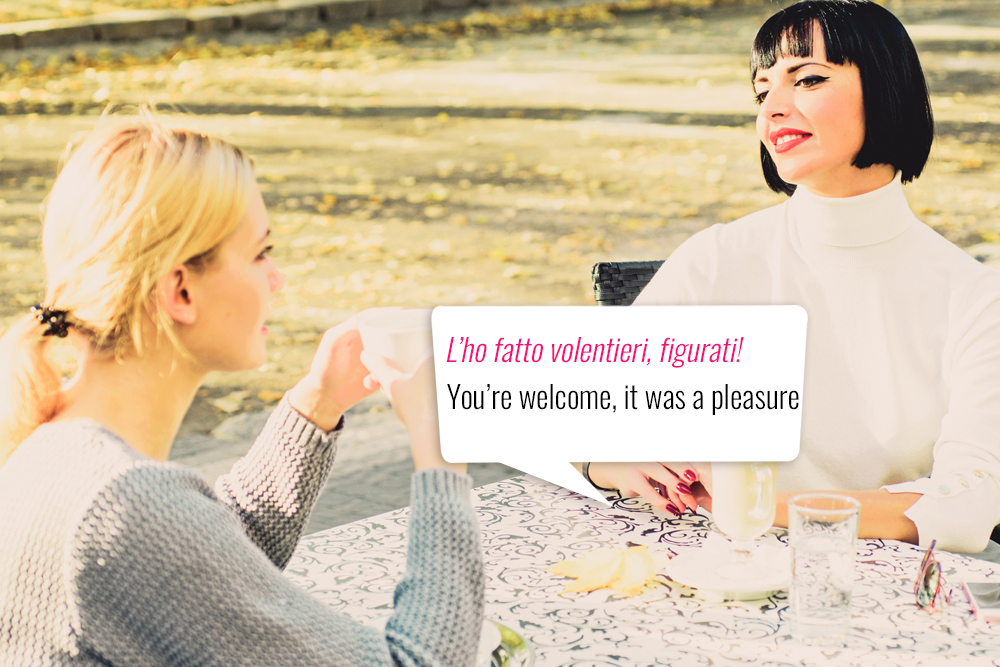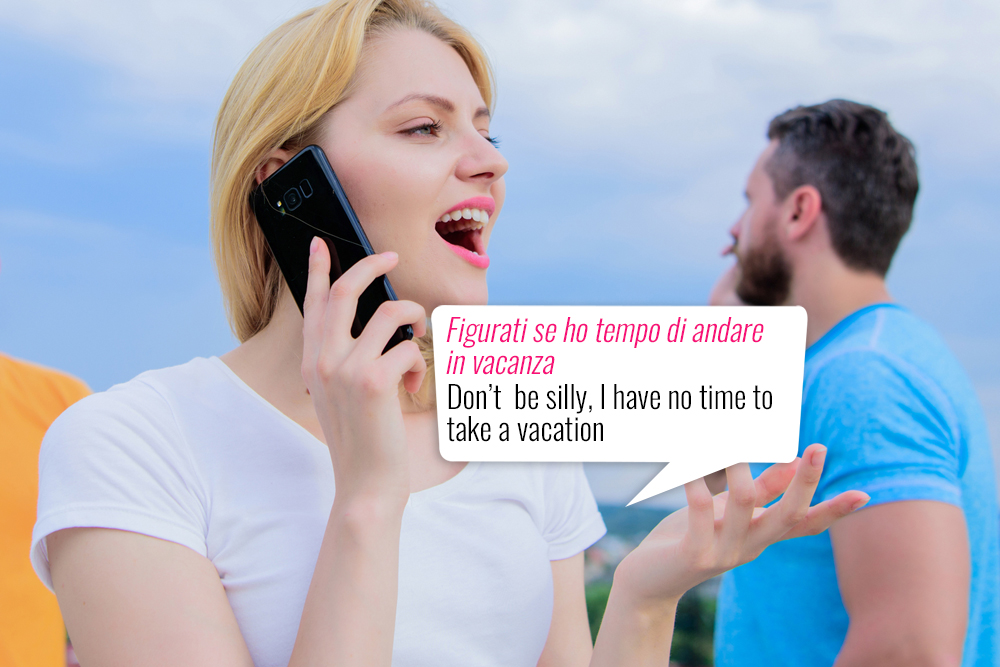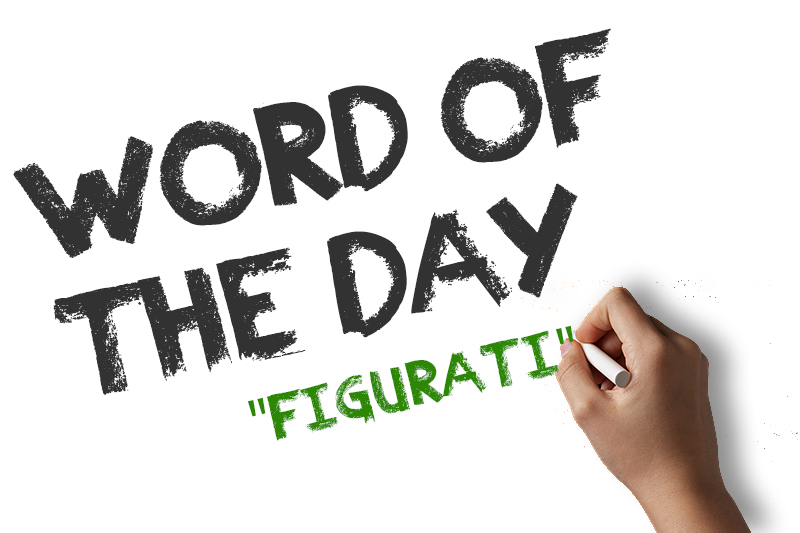If you don’t know how to use it, you don’t know how to translate it. There is a lot of truth in these words, especially for terms like figurati (fee-goo-rah-tee), whose actual meaning has nothing to do with its etymology and is used in a thousand different ways in our everyday speech.
A first consideration to make is about figurati’s tonic accent: we’re talking here about figùrati and not about figuràti. The latter is the past participle (at its plural form) of the verb figurare, which means “to appear,” “to be present,” and even “to represent,” even though it isn’t commonly used in this sense anymore, as raffigurare is usually preferred: we’d say questo quadro raffigura Vittorio Emanuele II (this painting represents Vittorio Emanuele II), rather than questo quadro figura Vittorio Emanuele II.
Right. Figurare is a peculiar verb, but figurati is even more peculiar because its many meanings are often discernible only from voice intonation — or, of course, the context of the sentence — and have very little in common with one another.
Figurati can be used on its own, as an exclamation (figurati!), in which case it can express both surprise (I can’t believe it!), or disbelief (in which case it can be translated with don’t be silly!). It can also be used in sentences: in these cases, surprise and disbelief are also common meanings (figurati che non è nemmeno venuto all’appuntamento— unbelievable! He didn’t even show up to the meeting/ figurati se sa parlare lo Spagnolo! — don’t be silly! He can’t speak Spanish).
Figurati is often used instead of “prego” to answer when someone thanks you for something: “Grazie per l’aiuto.” “Figurati!” — “Thanks for helping me.” “You’re welcome!”).
Don’t be surprised if you hear your Italian friends saying also figuriamoci instead of figurati: it’s pretty common, too, and it means just the same thing!

— L’ho fatto volentieri, figurati!
— You’re welcome, it was a pleasure

— Figurati se ho tempo di andare in vacanza
— Don’t be silly, I have no time to take a vacation

— Figurati, è stato bello aiutarti
— Not a bother, it was nice to help





























